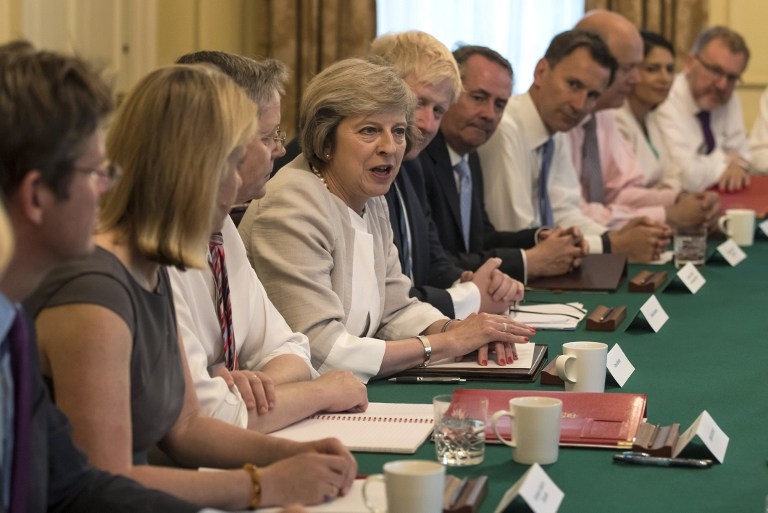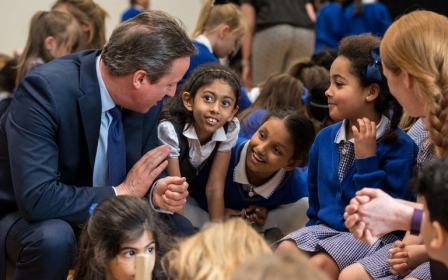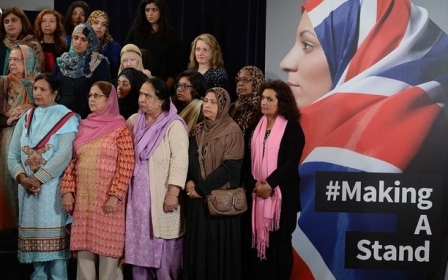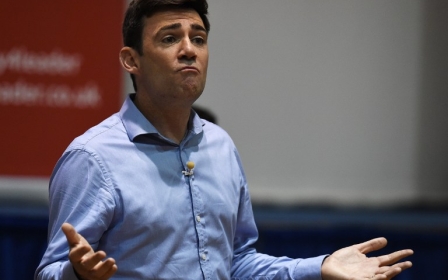Parliamentary report slams UK government counter-extremism policies

UK government proposals to tackle extremism risk making the situation worse and are based on unproven theories of radicalisation and vague definitions of extremism, parliament’s human rights committee warned in a report published on Friday.
The report by the Joint Committee on Human Rights concluded that progress towards putting in place a counter-extremism bill appeared to have gone backwards with the government “retreating from providing any level of detail”.
It also criticised the government's oversight arrangements for its existing Prevent strategy for tackling extremism, which it said were "too opaque and do not engender confidence".
"The difficulty around these issues should lead the government to tread with great care, for fear of making the situation worse, not better,” said Harriet Harman, the chair of the committee.
The current Conservative government and its Conservative-led coalition predecessor have struggled for years to introduce new measures focused on tackling so-called “non-violent extremism”, with plans for a counter-extremism bill included in each of the previous two Queen’s Speeches.
Theresa May, the new prime minister who replaced David Cameron last week, oversaw counter-extremism efforts for years in her previous role as home secretary, including the introduction of the controversial Prevent duty which requires teachers, doctors and other public servants to “have due regard to the need to prevent people from being drawn into terrorism”.
Critics suggest that the delay to the counter-extremism bill has been caused by the inability of the government to settle on a legally robust definition of extremism, and concerns that any attempt to outlaw so-called Islamist extremism could be used against individuals and groups espousing conservative religious views.
But the report said the government should use existing legislation to deal with people who promote violence and only legislate further where it could demonstrate a significant gap in the law.
'Escalator' theory
It also criticised the “escalator” theory of radicalisation on which it said current government policy was based, which it said “rests on the assumption that there is an escalator which starts with religious conservatism and ends with support for violent jihadism”.
“It is by no means proven or agreed that religious conservatism in itself correlates with support for violent jihadism. The aim should be to tackle extremism that leads to violence, not suppress views with which the government disagrees,” the report said.
Any new bill should be “evidence-based” and should be preceded by an independent review of the Prevent strategy, it added. Current definitions of extremism were also “couched in such general terms that they are likely to prove unworkable as a legislative definition”.
"Providing a clear definition of extremism is a difficult task and the government has yet to succeed in doing it," said Harman.
She said that planned legislation risked either being seen as discriminatory against Muslims, or being enforced indiscriminately and used against any group which espoused conservative religious views.
“Would applying counter-extremism measures to specifically Islamic religious conservatism in the cause of tackling violence be acceptable discrimination or would it give rise to justified grievance?” she said.
“The most precious asset in the fight against terrorism is the relationship between the authorities and the Muslim communities of this country. We must guard against any undermining of the relationship between the authorities and Muslim communities, which would make the fight against terrorism even harder.”
The report cited concerns raised by Sara Khan, a counter-extremism campaigner with close links to the Home Office, who told the committee that new legislation would "fuel the cause" of extremists who liked to "promote this view that they are being oppressed by British society as a whole".
"I do not think I have met two Muslims who hold the same definition. Again, that just shows how problematic the whole definition and understanding of extremism is," said Khan.
The report also questioned measures requiring universities to restrict the expression of extremist views, suggesting that this created a conflict with educational establishments’ duty to protect free speech, and proposals to use civil orders to silence or restrict the activities of groups or individuals deemed extremist.
Measures requiring schools, nurseries and childcare providers to monitor the children in their care for extremism as part of safeguarding duties were also questionable because “without an agreed definition of ‘extremism’ it is not clear what children would be safeguarded from,” it said.
The Prevent strategy and government plans to target non-violent extremism have drawn condemnation in recent months from international human rights watchdogs and the main opposition Labour Party, while the UK’s independent reviewer of terrorism legislation has called for an independent review of Prevent amid concerns it is discriminatory against Muslims.
In a report last week, the Rights Watch (UK) campaign group said that the introduction of the Prevent duty in schools was violating the rights of children and having a “chilling effect” on open discussion and debate in classrooms.
A Home Office spokesperson said: “Extremism causes terrorism and broader social harms, including hate crime, honour-based violence and discrimination. That is why we published a counter-extremism strategy which confronts all forms of extremist ideology head on, supports mainstream voices, and builds stronger and more cohesive communities.
“This broad counter-extremism agenda is distinct and complementary to our Prevent programme, which safeguards those who may be vulnerable to being drawn into terrorism. Prevent is both challenging and vitally important work.
"The threat we face, particularly from Daesh [the Islamic State group], is very real, and we have seen all too starkly and tragically the devastating impact radicalisation can have on individuals, families and communities. We will carefully consider the joint committee on human rights’ report and respond in due course.”
New MEE newsletter: Jerusalem Dispatch
Sign up to get the latest insights and analysis on Israel-Palestine, alongside Turkey Unpacked and other MEE newsletters
Middle East Eye delivers independent and unrivalled coverage and analysis of the Middle East, North Africa and beyond. To learn more about republishing this content and the associated fees, please fill out this form. More about MEE can be found here.




